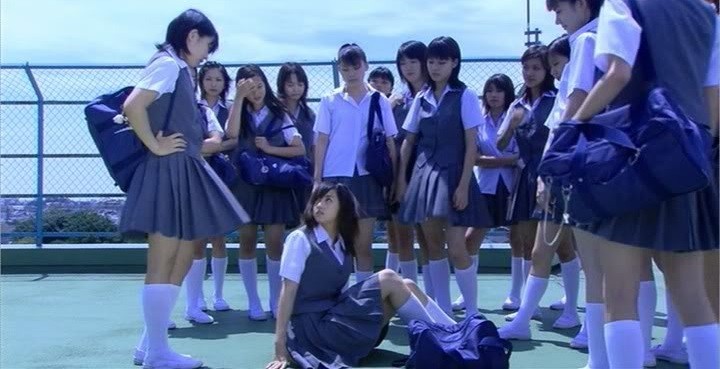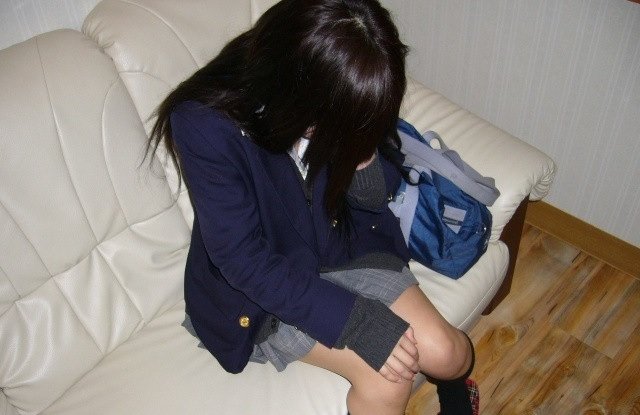Ijime (いじめ / 苛め) is the term used to describe bullying in Japan. It is a complex phenomenon that involves physical, verbal, and psychological abuse, often with serious and lasting consequences. Although bullying is a global issue, Ijime has specific characteristics deeply rooted in Japanese culture, where the pressure for conformity and the pursuit of social harmony can turn differences into something dangerous.
Unlike other parts of the world, where reporting bullying is more frequent, in Japan, victims often suffer in silence. The fear of standing out or "causing trouble" leads many not to seek help. This makes Ijime a problem that is often underestimated or ignored, but whose consequences can be devastating.
Table of Content
"Derukui wa Utareru": The Pressure for Conformity
The Japanese expression “Derukui wa Utareru” (出る杭は打たれる), which translates to “The nail that sticks out gets hammered down,” exemplifies Japan's culture of conformity. Being different can make anyone a target, whether in school, work, or other social spaces. Ijime is not limited to schools; cases also occur in corporate environments and even in communities, reflecting a society that punishes those who do not fit in.
Students who exhibit unique behaviors, whether academic, cultural, or even physical, often become targets. This includes not only those with visible differences, such as students from other cultures or those who do not master the Japanese language, but also anyone who stands out in any way. Unfortunately, teachers and other members of the school administration do not always intervene appropriately, and there are reports that some even reinforce the dynamics of abuse.
The targets of Ijime often face an impossible choice: adapt and try to disappear into the crowd or continue being themselves and risk isolation and aggression. The culture of conformity creates an environment where difference is seen as a threat, leading to a difficult cycle to break.

The Importance of Communication and the Role of Foreigners
One of the main barriers faced by foreigners living in Japan is communication. The ability to speak Japanese can make a crucial difference in social integration and cultural understanding. However, the lack of this skill creates a void that often fuels Ijime. Foreign students may be treated as "outsiders" and become easy victims due to misunderstandings or prejudices.
Although the Japanese are often described as polite and welcoming, these qualities can quickly disappear in environments where social pressure is high. After the initial period of reception, linguistic and cultural differences become more evident, especially for students in Japanese schools, who often feel the weight of exclusion and prejudice.
Schools and workplaces have been trying to create more inclusive environments, but there is still a long way to go. The integration of foreign students and professionals requires more than good intentions; it demands robust educational programs and cultural inclusion policies that actively combat Ijime. In environments where these measures are not implemented, victims may suffer profound psychological harm.

The Devastating Consequences of Bullying
The consequences of Ijime are often severe, affecting both the mental health and physical well-being of the victims. The psychological scars can last for years, and many develop disorders such as depression, anxiety, and even post-traumatic stress disorder. Documented cases of Ijime include disturbing stories, such as a teacher who was forced to eat chalk by students, illustrating the level of cruelty that can be reached.
In extreme cases, Ijime can lead to total isolation. The phenomenon of hikikomori, where individuals withdraw from society and spend years without leaving their rooms, is often related to bullying. Fear and shame prevent victims from seeking help, creating a cycle of suffering that seems never-ending.
Suicide is a tragic consequence of Ijime. Although Japan has reduced its suicide rate in the last decade, bullying remains one of the main factors that lead young people to make drastic decisions. The stigma and social pressure create an environment where asking for help is seen as a sign of weakness, which only worsens the problem. Between April and September 2012, for example, more than 144,000 cases of Ijime were reported, with hundreds considered to be of extreme severity, showcasing the extent of this issue.

Abuses of Power: "Power Hara" and Academic Harassment
Ijime is not limited to schools; harassment in workplaces, known as “power hara” (パワーハラスメント), is also common. This type of abuse of power occurs when bosses or superior colleagues use their authority to intimidate or humiliate subordinates. This includes verbal assaults, social exclusion, and the imposition of humiliating or impractical tasks.
Japan has faced international criticism for its lack of action against workplace harassment. In 2019, the Power Harassment Prevention Act was introduced to protect workers and impose stricter penalties. However, the changes are still recent, and Japanese corporate culture still faces challenges in eradicating power abuse practices.
Academic harassment, known as “AkaHara” (アカハラ), is also a concerning issue. University professors, for example, may force students to perform personal tasks, steal their scientific discoveries, or hinder the academic progress of their mentees. These abusive practices not only harm the careers of the victims but also affect the integrity of scientific research and higher education.

Combating Ijime: The Way Forward
Overcoming Ijime and other forms of harassment in Japan requires collective effort. Talking to children and teenagers, creating zero tolerance policies in schools and companies, and encouraging the reporting of abuse are important steps. While the fight against bullying is a global responsibility, Japan needs to address its cultural particularities that make the problem more challenging.
If you or someone you know is a victim of Ijime, seek support immediately. Talking to friends, family, or mental health professionals can make a big difference. Change begins when each of us commits to creating safer and more respectful environments for everyone.
